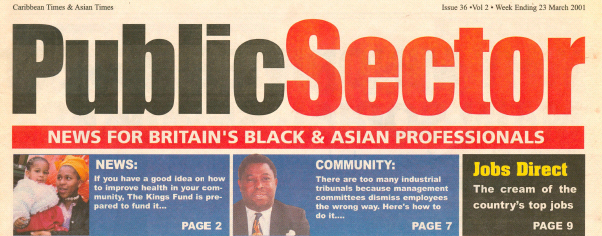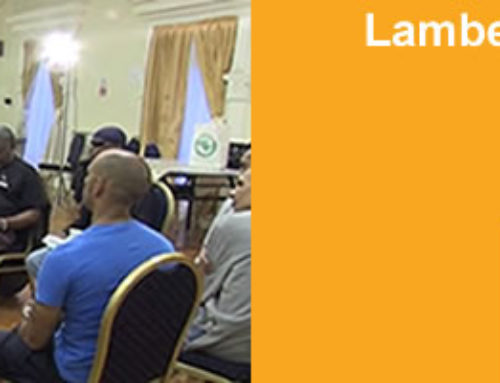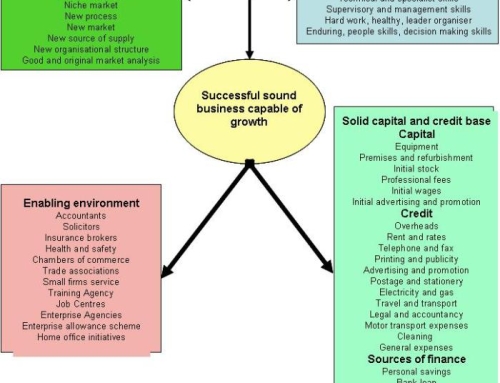Planning
Question: You referred to the principles of management in your last advice shop, what are these principles and how does one implement them Asif. Bristol
Answer: Most successful endeavours start with a plan, but all not all plans are successfully implemented. The flip side to this is that most endeavours that do not succeed do not have good plans. This must suggest to you that planning is the most important activity within the framework of management. It is also perhaps the first activity in the scheme of things. The other management activities are organising, staffing, leadership and control.
The most appropriate definition is to look at a plan as a template that allows you to make a selection of a course of action from different alternatives. The plan selected at any particular point in time will be based on the criteria that you have set for yourself as the most important.
So before you can plan you will need an objective. An objective is something desirable that you want to achieve.
Within the context of the work place objectives are closely related to the reason why the organisation was set up. For instance, most local governments have been set up to provide different services for the residents. Some of the services are demanded by statute; others are seen as being desirable and make good social sense. You may have housing, social care, educational, environment, leisure, and other services. In setting the objectives of the organisation, you should recognise that you must be looking at the long term, though the short term may also be just as important. Setting the objectives must sometimes also involved different interested parties of stakeholders. These may be potential users of the service as well as the employees who will implement the service.
It is usual to have different sub objectives or a hierarchy of objectives. So these days one hears of terms like vision, mission, strategic objectives, aims, goals that have all been arrived at after discussion on the general thrust of the organisation. The plan provides the chart as to how these objectives can be achieved.
One most important issue however is that if you have a long-term objective, it still needs to be broken down into a time frame. The time frame allows you to set a target that is measurable that will enable you to determine when the objective has been achieved.
The process of planning is similar to the process of objective setting, different people are involved in it except that the plan should involve people who are expected to be part of the implementation. A typical planning process will set out the basic objectives and then ask others who are close to the implementation to provide information about the resources required, the activities and the realistic outputs that can be achieved given the time frame. This management then uses to either revise the objectives to make them more attainable or to provide more resources.
A plan determines what inputs are necessary, the process of how the targets will be achieved, the human and physical resources, and how much all these will cost. A plan also provides a schedule of activities and outputs, putting the targets into different time slices and attributing to each time slice the measurement indicators.
A simple travel plan to travel from London to Glasgow provides us with an example of an executable plan.
Fly. Book aircraft, travel by bus and tube to the airport or take taxi. Wake up at 5 am to get to airport for 8 am for a two hour flight to get to Glasgow for 11 am. High cost and expensive, rushed journey.
Train. Book train, travel to station by bus and tube. Wake up at 5 am to get to train station for 5 hour journey arrive at 2 p.m. Expensive but less rushed.
Drive. Leisurely 7 hour drive to get to Glasgow for 4 p.m. Less expensive but more tiring. Which plan we follow depends on when we need to be in Glasgow, what we can afford, and what frame of mind we need to be in when we get to Glasgow. I
t also depends on what time we have available for travel. In between these options we may need to consider travelling the night before and staying in a hotel. The plan selected is a combination of these options. We plan unconsciously all the time but to be effective we need a structure and a template.
Ade Sawyerr is a partner of Equinox Consulting, a management consultancy that provides consultancy, training, and research and focuses on the economic advancement amongst minority groups including management development and leadership training programmes. Please send your questions to him at ades@equinoxconsulting.net.






[…] Source: Planning […]
[…] Planning Question: You referred to the principles of management in your last advice shop, what are these principles and how does one implement them Asif. Bristol Answer: Most successful endeavours start with a plan, but all not all plans are successfully implemented. The flip side to this is that most endeavours that do not succeed do not have good plans. This must suggest to you that planning is the most important activity within the framework of management. It is also perhaps the first activity in the scheme of things. The other management activities are organising, staffing, leadership and control. The […] Source: Planning […]